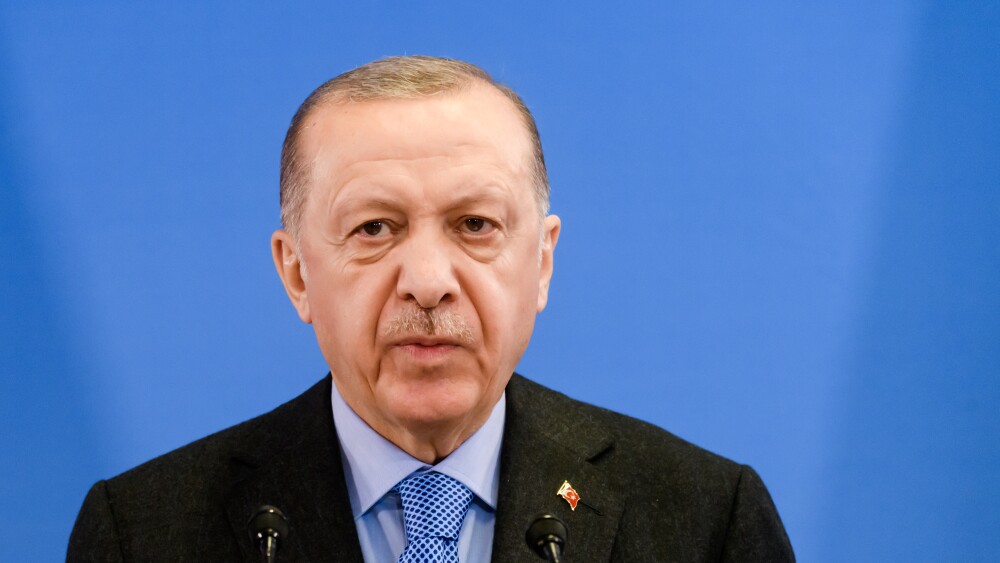The strike on Doha on September 9, 2025, marked a watershed moment in international relations. For too long, the prevailing wisdom in Western policy circles was that state sponsors of terrorism, like Qatar, were an unfortunate but manageable part of the geopolitical landscape. Their financial and media support for groups like Hamas was seen through a transactional lens—a cost of doing business in a complex region, a reality to be navigated through diplomatic whispers and backroom deals.
This shift in the global paradigm of accountability, born from the debris in Doha, must now be applied with far greater force and scope to a far more significant enabler of terrorism: Turkey.
The Israeli action in Doha, however, ripped away this facade, exposing the deadly foolishness of such a calculus. It demonstrated, with brutal clarity, that states which enable terrorism, no matter their perceived utility as intermediaries, cannot be granted impunity.
This shift in the global paradigm of accountability, born from the debris in Doha, must now be applied with far greater force and scope to a far more significant enabler of terrorism: Turkey.
The case against Turkey is not a matter of conjecture or partisan polemics; it is a matter of open record. Under the leadership of President Recep Tayyip Erdoğan, Turkey has openly and repeatedly cultivated ties with the leadership of Hamas, providing them with sanctuary, political legitimacy, and a platform for their extremist agenda.
As Qatar’s role as a mediator has diminished, Hamas figures have visibly migrated to Ankara, where they have met with senior Turkish officials and received political cover. This flagrant support for a group that orchestrated the horrific mass murder of October 7, 2023, is a direct challenge to the very foundation of regional security and the integrity of the NATO alliance.
This also creates a dangerous contradiction. Turkey expects the full privileges and protections of its NATO membership, even as its government provides sanctuary to a designated terrorist organization. The same argument that justified confronting Qatar—that states which enable terror cannot enjoy normal diplomatic and economic relations—applies with a magnified intensity to Turkey. The world cannot afford to let NATO membership be an immunity card for a government that has adopted an Islamist foreign policy and openly collaborates with groups dedicated to violence and destruction.
The diplomatic and technological relationship must be put on ice. This means suspending all bilateral military cooperation and technology transfers.
Therefore, the response must be a comprehensive and relentless campaign of isolation, a form of targeted statecraft that is both fierce and methodical. This is not about military intervention or blind escalation, which would risk a devastating regional conflagration. It is about a “scorched-earth” approach to diplomatic and economic pressure, calibrated to make Ankara’s costs of sheltering terrorism intolerable.
The tools of this campaign are numerous and must be deployed in a coordinated fashion.
First, the financial arteries must be clamped down. Western nations should work in concert to freeze state-linked Turkish assets and impose immediate, comprehensive travel bans on rank-and-file officials tied to extremist networks. This goes beyond symbolic gestures; it is about targeting the very institutions that allow Erdoğan’s government to operate and project power. Furthermore, there must be a rigorous clampdown on Turkish charities and NGOs that, in many cases, act as financial conduits or recruitment covers for extremist groups. This requires a level of oversight and enforcement that has been absent to date, conditioning all future trade and investment deals on a verifiable severing of these links.
Second, the diplomatic and technological relationship must be put on ice. This means suspending all bilateral military cooperation and technology transfers. The West cannot, in good conscience, continue to provide Ankara with advanced weapons systems or sensitive technology while its government provides sanctuary and political legitimacy to a group responsible for mass murder. High-profile parliamentary and public hearings in Western capitals should be used to lay bare Turkey’s ties to Hamas, creating public and reputational pressure that Ankara cannot easily deflect. Every international forum, from the United Nations to the G20, must become a stage for highlighting Turkey’s dangerous double game.
This is not an argument for the humiliation of the Turkish people. It is a demand for accountability from a government and its proxies.
Third, the economic pressure must be both immediate and chronic. The leverage of international law and multilateral sanctions must be used to create a pricing mechanism for Turkey’s actions. The goal is to make the economic cost of supporting terrorism outweigh any perceived political gain for the Erdoğan government. Denying Ankara access to critical technologies, joint development programs, and even certain markets will directly undermine its ability to sustain its projection of power both domestically and abroad. The argument is simple: if you insist on sheltering those who plot and fund violence, there must be a price.
This is not an argument for the humiliation of the Turkish people. It is a demand for accountability from a government and its proxies. Erdoğan’s domestic political survival is inextricably linked to external patronage and a carefully constructed narrative of global influence. By cutting off these lifelines, the West can deprive his government of the means to sustain its dangerous behavior.
The lesson of Doha is a powerful one: the old rules of engagement are dead.
Published originally on September 16, 2025.








